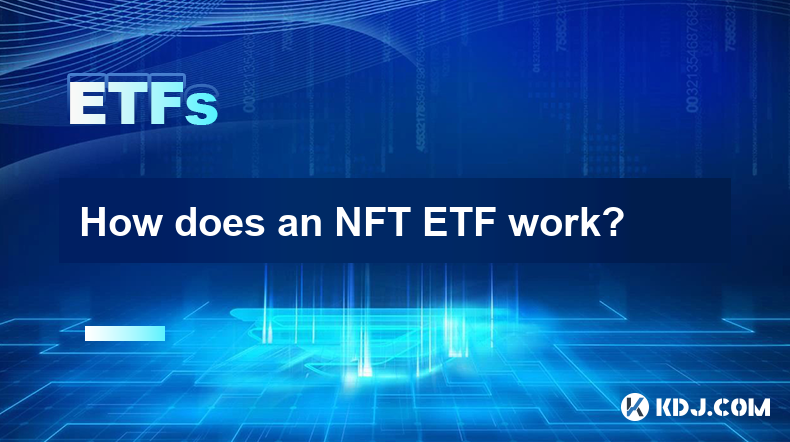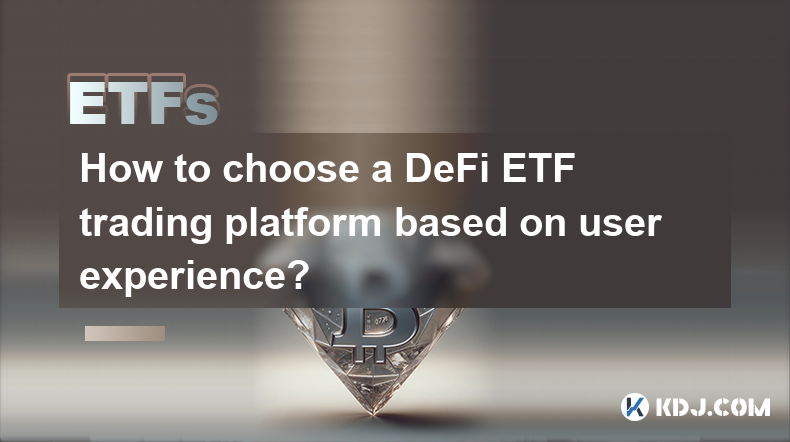-
 Bitcoin
Bitcoin $98,059.2526
1.32% -
 Ethereum
Ethereum $2,693.5650
-0.83% -
 Tether USDt
Tether USDt $1.0006
0.03% -
 XRP
XRP $2.4466
5.50% -
 Solana
Solana $195.9999
2.76% -
 BNB
BNB $581.0291
0.75% -
 USDC
USDC $1.0002
0.02% -
 Dogecoin
Dogecoin $0.2521
1.68% -
 Cardano
Cardano $0.7246
2.02% -
 TRON
TRON $0.2318
1.42% -
 Chainlink
Chainlink $18.8967
0.99% -
 Avalanche
Avalanche $25.0508
0.54% -
 Stellar
Stellar $0.3345
4.52% -
 Sui
Sui $3.1632
-0.28% -
 Toncoin
Toncoin $3.7778
-0.04% -
 Hedera
Hedera $0.2385
2.89% -
 UNUS SED LEO
UNUS SED LEO $9.7949
-0.07% -
 Shiba Inu
Shiba Inu $0.0...01520
0.68% -
 Bitget Token
Bitget Token $6.6445
0.21% -
 Litecoin
Litecoin $104.6029
3.27% -
 Hyperliquid
Hyperliquid $23.2486
-3.58% -
 Polkadot
Polkadot $4.7402
4.38% -
 Bitcoin Cash
Bitcoin Cash $325.9812
2.67% -
 Ethena USDe
Ethena USDe $1.0004
0.02% -
 MANTRA
MANTRA $6.1719
10.91% -
 Uniswap
Uniswap $9.0202
-0.34% -
 Dai
Dai $0.9999
-0.02% -
 Ondo
Ondo $1.4062
8.72% -
 Monero
Monero $215.2364
-5.55% -
 Pepe
Pepe $0.0...09336
-0.90%
How legal is it to invest in currency ETFs?
Investing in cryptocurrency ETFs requires a comprehensive understanding of the legal framework, as regulations vary across jurisdictions concerning their legality, regulatory risks, and legal remedies.
Jan 06, 2025 at 05:01 pm

Key Points:
Overview of Cryptocurrency ETFs:
- Definition and types of cryptocurrency ETFs
- Benefits and risks of investing in cryptocurrency ETFs
Legal Framework for Cryptocurrency ETFs:
- Regulatory landscape in different jurisdictions
- Compliance requirements for ETF issuers
Legal Issues Associated with Cryptocurrency ETFs:
- Volatility and market manipulation
- Custody and security of underlying assets
Investing in Cryptocurrency ETFs:
- Due diligence and risk assessment
- Choosing an appropriate ETF
- Tax implications
FAQs on Cryptocurrency ETF Legality:
- Is it legal to invest in cryptocurrency ETFs in my country?
- What are the regulatory risks associated with cryptocurrency ETFs?
- What are the legal remedies available in the event of fraud or theft?
Article:
Overview of Cryptocurrency ETFs
Cryptocurrency exchange-traded funds (ETFs) are investment vehicles that track the performance of a basket of cryptocurrencies, providing investors with exposure to the digital asset market without the complexities of direct ownership. Different types of cryptocurrency ETFs exist, such as those that invest in a specific cryptocurrency (e.g., Bitcoin ETF), a group of cryptocurrencies (e.g., blockchain technology ETF), or a combination of cryptocurrencies and traditional assets (e.g., hybrid ETF).
ETFs offer several benefits, including diversification, convenience, and liquidity. However, they also carry risks associated with cryptocurrency market volatility, potential manipulation, and security concerns.
Legal Framework for Cryptocurrency ETFs
The legal framework surrounding cryptocurrency ETFs varies across jurisdictions. In the United States, the Securities and Exchange Commission (SEC) has yet to approve a physically backed Bitcoin ETF, primarily due to concerns about market manipulation and custody risks. However, several ETFs that invest in cryptocurrency futures or derivatives have been approved by the SEC.
In Europe, the European Securities and Markets Authority (ESMA) has adopted a more cautious approach, warning investors of the high risks associated with cryptocurrency ETFs and imposing stricter regulatory requirements.
Legal Issues Associated with Cryptocurrency ETFs
Several legal issues are associated with cryptocurrency ETFs. Volatility and market manipulation are primary concerns, as the cryptocurrency market is known for its rapid price swings and susceptibility to manipulative practices.
Additionally, the custody and security of underlying assets present legal challenges. ETFs require a custodian to store the cryptocurrencies, raising questions about the legal liability and security measures in place to prevent theft or loss.
Investing in Cryptocurrency ETFs
Before investing in cryptocurrency ETFs, it is essential to conduct thorough due diligence and assess the risks involved. Investors should research the specific ETF's investment strategy, fees, and track record.
Choosing an appropriate ETF depends on an investor's risk tolerance and investment objectives. ETFs that track established cryptocurrencies, such as Bitcoin or Ethereum, may offer more stability, while those that invest in emerging cryptocurrencies or blockchain technology could provide higher potential returns but also carry greater risks.
Tax implications should also be considered, as cryptocurrency ETFs are typically treated as taxable assets. Investors may be liable for capital gains taxes if they sell their ETF shares at a profit.
FAQs on Cryptocurrency ETF Legality
Is it legal to invest in cryptocurrency ETFs in my country?
The legality of investing in cryptocurrency ETFs varies depending on the jurisdiction. It is crucial to check with local regulatory authorities or seek legal advice to determine the legal status of cryptocurrency ETFs in your country.
What are the regulatory risks associated with cryptocurrency ETFs?
Regulatory risks include the potential for increased oversight and regulation of cryptocurrency markets, which could impact the performance and availability of cryptocurrency ETFs.
What are the legal remedies available in the event of fraud or theft?
Legal remedies may vary depending on the jurisdiction and the specific circumstances. Investors should seek legal advice to explore their rights and pursue appropriate legal actions in the event of fraud or theft.
Disclaimer:info@kdj.com
The information provided is not trading advice. kdj.com does not assume any responsibility for any investments made based on the information provided in this article. Cryptocurrencies are highly volatile and it is highly recommended that you invest with caution after thorough research!
If you believe that the content used on this website infringes your copyright, please contact us immediately (info@kdj.com) and we will delete it promptly.
- Binance: The Crypto Powerhouse That Transformed the Digital Asset Landscape
- 2025-02-08 00:56:05
- Dogecoin Price Eyes $10 Surge: Will $0.19 Hold the Line?
- 2025-02-08 00:56:05
- Mutuum Finance (MUTM) Presale Raises $71.45k, Likened to Solana's Rapid Ascent
- 2025-02-08 00:56:05
- The Best Cryptos for Beginners in 2023: Arctic Pablo Coin, Pudgy Penguins, Just a Chill Guy, Turbo, and Memecoin
- 2025-02-08 00:56:05
- Bitcoin (BTC) Hits Record $108,786 High, Marking a Historical Milestone for the Cryptocurrency Market
- 2025-02-08 00:56:05
- Bonk (BONK) Price Prediction: BONK/USD Down 30% Despite Massive Token Burns
- 2025-02-08 00:46:04
Related knowledge

How to trade Bitcoin ETFs with leverage?
Jan 08,2025 at 03:03pm
Key Points:Introduction to Bitcoin ETFsTypes of Bitcoin ETFsHow to Choose a Bitcoin ETFTrading Bitcoin ETFs with LeverageRisk Management ConsiderationsBest Platforms for Trading Bitcoin ETFs with Leverage1. Introduction to Bitcoin ETFsBitcoin exchange-traded funds (ETFs) are investment vehicles that track the price of Bitcoin, allowing investors to gain...

How does an NFT ETF work?
Jan 06,2025 at 05:02pm
Key Points:NFT ETFs aim to provide exposure to the underlying value of NFTs without the need for direct ownership.They offer diversification, liquidity, and lower barriers to entry compared to investing in individual NFTs.NFT ETFs may track baskets of NFTs or market capitalization-weighted indexes of NFT assets.Due to the nascent and evolving nature of ...

Ethereum ETF long-term investment strategy based on Ethereum 2.0 upgrade.
Jan 08,2025 at 01:06am
Key Points:Understanding Ethereum 2.0 and its implications for long-term investment in Ethereum ETFsIdentifying potential risks and challenges associated with Ethereum ETFsDeveloping a comprehensive investment strategy that aligns with your financial goals and risk toleranceEthereum ETF Long-Term Investment Strategy Based on Ethereum 2.0 UpgradeUndersta...

How to choose a DeFi ETF trading platform based on user experience?
Jan 10,2025 at 07:32am
Key Points:Consider platform usability and user interface design.Evaluate trading fees and liquidity.Assess security measures and track record.Look for educational resources and customer support.Review the platform's community involvement and transparency.How to Choose a DeFi ETF Trading Platform:1. UX and UI Design:Choose platforms with beginner-friend...

What is the daily rebalancing mechanism for inverse ETFs?
Jan 09,2025 at 08:30pm
Key Points:Definition of inverse ETFsDaily rebalancing mechanismFeatures of inverse ETFsBenefits of inverse ETFsRisks associated with inverse ETFsWhat are Inverse ETFs?Inverse ETFs, also known as inverse exchange-traded funds, are financial instruments designed to provide returns that are inversely correlated to the performance of an underlying index or...

How to judge the reliability of a trading platform?
Jan 07,2025 at 06:18pm
Key PointsSecurity Measures: Assess the platform's security features, such as two-factor authentication (2FA), cold storage of funds, and insurance coverage.Transparency and Regulation: Evaluate the platform's regulatory status, compliance with anti-money laundering (AML) and know-your-customer (KYC) regulations, and financial statements.Market Depth an...

How to trade Bitcoin ETFs with leverage?
Jan 08,2025 at 03:03pm
Key Points:Introduction to Bitcoin ETFsTypes of Bitcoin ETFsHow to Choose a Bitcoin ETFTrading Bitcoin ETFs with LeverageRisk Management ConsiderationsBest Platforms for Trading Bitcoin ETFs with Leverage1. Introduction to Bitcoin ETFsBitcoin exchange-traded funds (ETFs) are investment vehicles that track the price of Bitcoin, allowing investors to gain...

How does an NFT ETF work?
Jan 06,2025 at 05:02pm
Key Points:NFT ETFs aim to provide exposure to the underlying value of NFTs without the need for direct ownership.They offer diversification, liquidity, and lower barriers to entry compared to investing in individual NFTs.NFT ETFs may track baskets of NFTs or market capitalization-weighted indexes of NFT assets.Due to the nascent and evolving nature of ...

Ethereum ETF long-term investment strategy based on Ethereum 2.0 upgrade.
Jan 08,2025 at 01:06am
Key Points:Understanding Ethereum 2.0 and its implications for long-term investment in Ethereum ETFsIdentifying potential risks and challenges associated with Ethereum ETFsDeveloping a comprehensive investment strategy that aligns with your financial goals and risk toleranceEthereum ETF Long-Term Investment Strategy Based on Ethereum 2.0 UpgradeUndersta...

How to choose a DeFi ETF trading platform based on user experience?
Jan 10,2025 at 07:32am
Key Points:Consider platform usability and user interface design.Evaluate trading fees and liquidity.Assess security measures and track record.Look for educational resources and customer support.Review the platform's community involvement and transparency.How to Choose a DeFi ETF Trading Platform:1. UX and UI Design:Choose platforms with beginner-friend...

What is the daily rebalancing mechanism for inverse ETFs?
Jan 09,2025 at 08:30pm
Key Points:Definition of inverse ETFsDaily rebalancing mechanismFeatures of inverse ETFsBenefits of inverse ETFsRisks associated with inverse ETFsWhat are Inverse ETFs?Inverse ETFs, also known as inverse exchange-traded funds, are financial instruments designed to provide returns that are inversely correlated to the performance of an underlying index or...

How to judge the reliability of a trading platform?
Jan 07,2025 at 06:18pm
Key PointsSecurity Measures: Assess the platform's security features, such as two-factor authentication (2FA), cold storage of funds, and insurance coverage.Transparency and Regulation: Evaluate the platform's regulatory status, compliance with anti-money laundering (AML) and know-your-customer (KYC) regulations, and financial statements.Market Depth an...
See all articles





















































































